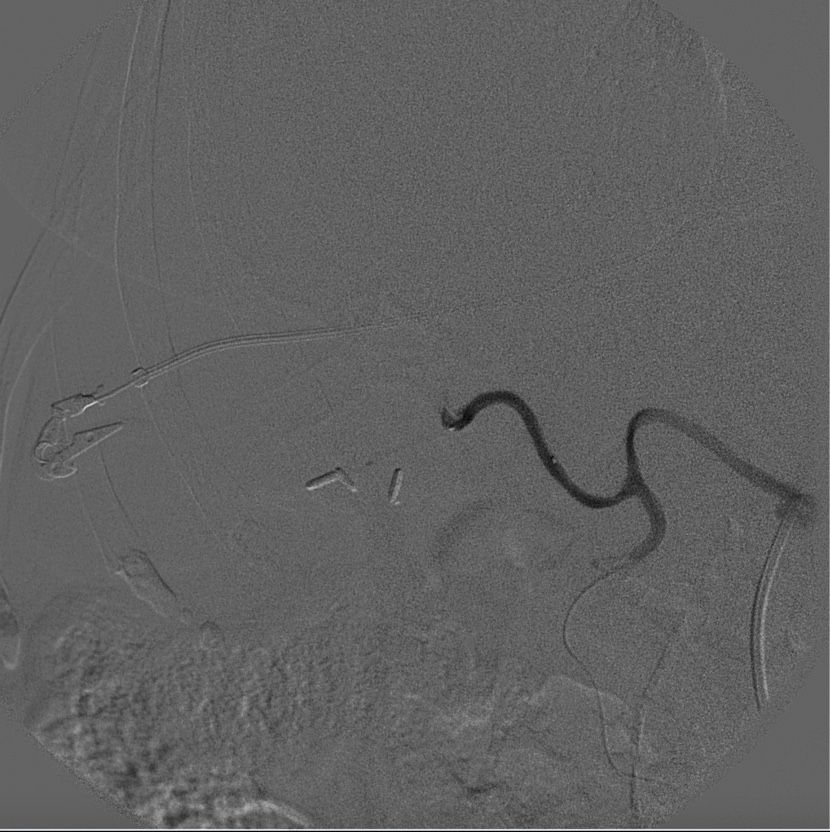Abstract
Transcatheter arterial chemoembolization is a technique for provoking ischemia and cytotoxic activity by selectively injecting microspheres containing chemotherapy drugs into vessels supplying a tumor. An 87-year-old female patient on palliative treatment for hepatocellular carcinoma and with indications for chemoembolization underwent preparatory angiography, which revealed celiac trunk occlusion. The treatment option chosen was selective catheterization of the hepatic artery proper to release the chemotherapy agent via an alternative route through the superior mesenteric artery with communication using the pancreaticoduodenal arcade. Studies have reported evidence showing increased survival after chemoembolization and also reduced tumor growth rate. However, difficulties with accessing and catheterizing the artery feeding the tumor via the alternative access make the procedure a challenge, because of the tortuosity of the pancreaticoduodenal arcade.
Keywords:
chemoembolization; hepatocellular carcinoma; palliative treatment

 Thumbnail
Thumbnail
 Thumbnail
Thumbnail
 Thumbnail
Thumbnail
 Thumbnail
Thumbnail
 Thumbnail
Thumbnail




